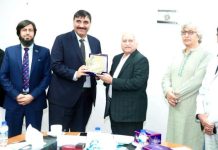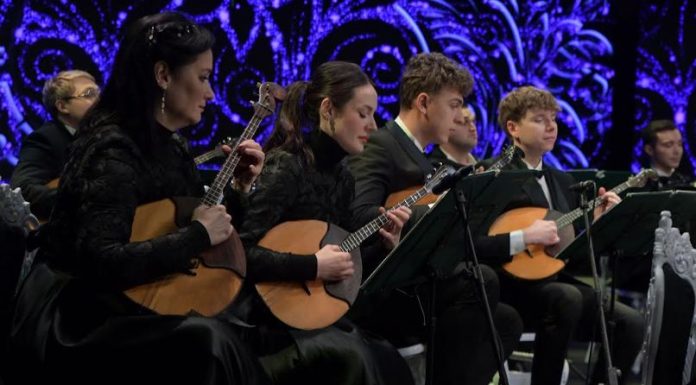Professor Dr. Muhammad Zia-Ul-Haq
****
Increasing religiosity has made faiths very important in global affairs. Faith has become a
significant force in the global society. Religion is a force of conflict resolution but it has
been portrayed as a reason for conflict creation. In contemporary international
circumstances religion has returned as a powerful force for construction or destruction.
The effectiveness of religious is particularly felt in the area such as Kashmir, Bosnia,Iraq,
Afghanistan, Kosovo, Chechnya, Pakistan,India, Northern Ireland, the Middle East, sub-
Saharan Africa, and other parts of world which are acute zones of conflict.It is reported
that Muslims, Catholic Croats and Orthodox Serbs of Balkan all are from same ethnic
background and all three speak the same language and share the same race but divided by
the religion. Religion is often considering at the fault-line along which the sides divide in
global conflicts. The reason for tensions on the name of religion is its role in defining the
identity. The twentieth century was dominated for ideology while the 21 st century will be
famous by the identity. The turn of focus from ideology to identity brought religious
affiliations at the center stage of contemporary world.
Various types of regional, economic and ethnic conflicts are oftenturning towards
religious dimensions which help exclusivists and extremist to use ‘them and us’ mentality
for controlling attitude of the people on the name of religion and kilning the innocents on
the name of religion. No theology is legitimizing their actions but the causes and
consequences of their action determining that how and where religions will be dealt in
twenty-first century. Incidents such as 9/11 have illustrated us the ability of a few persons
to bring their entire civilizationinto a conflict with other civilizationswhether their fellow
majority agrees or does not agree with their thinking or actions.Present circumstances
disclose that extremism is not limited to any specificrace, religion, or region. It is a global
phenomenon and extremists are present everywhere. Some theorists are of the view that
2
religions are as they were before and contemporary religiosity is simply a modern version
of the old theory of despotism and some fanatical religious subscribe this theory. In our
view the real dichotomy is not among world religions, but between exclusivistsand
extremists, on the one hand, and pluralistsand inclusivists on the other.
Due to this dominating position of religions, Professor Hans Kϋng has rightly observed
‘No peace among the nations without peace among the religions. No peace among the
religions without dialogue between the religions. No dialogue between the religions
without investigation of the foundation of the religions.’
First time in the historyon this scale and frequency, there are the serious effortsat a global
level for mutual understanding among world religion. In these global efforts the most
effective and serious consideration to world religions was given by the HE Nursultan
Nazarbayev, Founding President of Republic of Kazakhstan. After the independence, in
the formative period of the republic of Kazakhstan, he realized that sustainable economic
development is dependent on peace and pace is not passable without bringing world
religions closer and bridging gap among their followers.For this great task President
Nursultan Nazarbayev invited leaders of world and traditional religions to Astana in
2003.The First Congress of Leaders of world and traditional religions was held
on September 23-24, 2003 in Astana. Leaders and eminent representatives of religions as
well as honorable guests from 13 countries of Europe, Asia and Africa participated in the
forum. It was decided in this first congress that a permanent secretariat of the congress of
world and traditional Religionscomprises of representatives of leaders and eminent
personalities of religions should be established to promote following goals and
objectives:
promoting global dialogue among religions and cultures
deepening and strengthening mutual understanding and respect among
different religious communities
development of the culture of tolerance and mutual respect as opposed to the
ideology of hatred and extremism;
3
cooperation and interaction with all international organizations and structures that
pursue the goals of promoting dialogue between religions, cultures and
civilizations.
To achieve these goals and objectives the Secretariat has organized up to know several
congresses.As already mentioned first Congress of Leaders of world and traditional
religions was held on September 23-24, 2003 in Astana. The participants of the First
Congress decided to hold inter-religious summit on a regular basis and set up a working
body. The Second Congress of leaders of world and traditional religions was held
on September 12-13, 2006 in Astana on the theme of ‘Religion, society and international
security.’ This Congress was held at the state of the art purposely built forum’s
permanent venue ‘Palace of Peace and Harmony’. The second congress, which brought
together 43 delegations from 20 countries of Europe, Asia, Africa and Americas, adopted
‘The Principles of Inter-religious Dialogue’ as core theme. On the basis of the
recommendations the second congress International Centre for Cultures and Religions
was established. ‘The Role of Religious Leaders in Building a World of Tolerance,
Mutual Respect and Cooperation’ was theme of third Congress which held on July 1-
2, 2009 in Astana. In this congress visionary leader of Republic of Kazakhstan proposed
creation of a Council of Religious Leaders that would coordinate the activities of the
Congress, engage in interaction and cooperation with other forums and
international organizations that pursue the goals of promoting dialogue among cultures
and religions. The Fourth Congress of leaders of world and traditional religions, was held
on May 30-31, 2012 in Astana with the theme ‘Peace and harmony as the choice of
mankind.The Council of Religious Leaders – which brings together leaders and eminent
representatives of world and traditional religions was set up in this congress.The
members of the Council have founded an alley called ‘Rukhanijarasym’ (Spiritual
harmony) in the capital city of Kazakhstan.5 TH Congress of Leaders of world and
Traditional Religions held on 10-11 June 2015 at Astana, Kazakhstan. It acknowledged
the important role of the Congress and the contribution of the Republic of Kazakhstan to
the promotion of inter-religious and inter-civilizational dialogue to build a peaceful, just
and safe world in the XXI century. The VI Congress of Leaders of World and Traditional
4
Religions in Astana officially ended on October 11,2018. The Congress united
representatives of more than 80 delegations from 46 countries, including politicians,
religious leaders of Islam, Christianity, Judaism, Buddhism, Hinduism, Taoism,
Zoroastrianism, as well as representatives of international organizations. The participants
adopted the final declaration outlining the role of the political and religious leaders in the
maintenance of peace and stability.
All the initiatives of the republic of Kazakhstan through secretariat of world and
traditional religions under the patronization of HE Kassym-Jomart Tokayev , President of
Kazakhstan are contributing to bridge gap among the followers of world religions. It has
not only created instructional framework for peace among world religion but also
engaged religious leaders from all over the world representing all major religion in this
great task. The substantive achievement of the secretariat is mutual respect and friendly
relationship among the representatives of the world religions. The achievements of the
pioneer work of the Republic of Kazakhstan are contributing in changing the differences
into diversities.
The themes and sub themes that have been adopted in various interfaith meetings affirm
that the present developments in science and technology require parallel progress in the
relationship of followers of various religious and cultural traditions. The time has
acknowledgedthe need for joint efforts by all major civilizations to promote a culture of
dialogue on the basis of diversity,difference, plurality tolerance, freedom of
expression,mutual respectand sincere readiness at the grass root level. Agreement on the
agenda on the basis of common interests such as trans-cultural norms,spiritual
satisfaction, justice and submission to the creature of the universe will lead dialogue to
succeed. The dialogue is the only hope for saving the world from clashes and conflicts
among world civilizations; otherwise, hatred, violence andworldwide conflicts will
continue taking religious dimension after feeding from misunderstandings,
misconceptions, and misrepresentations. Confidence of human beings on the movement
of dialogue lead us ahead and we will be able to talk on other matters that are important
to all nations, such as holy places, ecology,food technology, medical ethicsetc.
Worldwide efforts against hunger, disease and natural disasters can be unified only after a
better understanding, harmony and peace among the faiths through dialogue.











